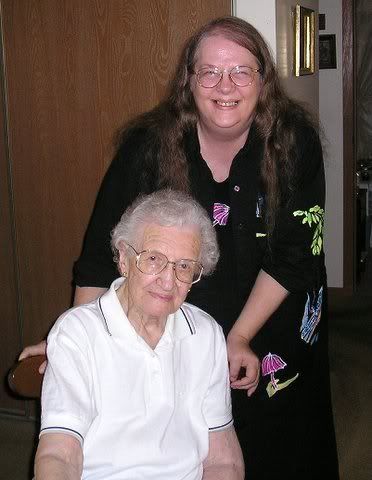One more down five left to go ... BY SUNDAY!

Good morning. This is me and Missy. She’s trying to get comfortable again … she liked the part of me that was just reading compared to the part of us that is typing. She says don’t you want to pet the pretty kitty. You know the one with the good looking tail? Hmmm uh huh, ok … maybe later?
Soooo this is it March 13th in all her beauty … the time is now 6:20 am. And, that is the correct new time. We’re still adjusting to it … I give it about a 7.
The obvious goal of this morning is going to be getting another couple papers done, which will have to include some reading. I felt satisfied yesterday in that after the resources are located , the paper only took two hours to write and an extra 45 minutes to edit. That is something I think we should keep better track of … Just for general purpose of scheduling. Not too much to say in that direction though … we’re still on our first cup of coffee and am not up to speed. We did go over the last paper one more time and watched the video just twice. Obviously we’re still working with the obsessive compulsive disorder. We’re trying to put it down. I was hoping that in writing about the video might help to end the amount of thoughts we felt impelled to have on the subject. I sent a copy out to our youngest son hoping that all our bases would be covered. We are now going to instead of trying to stifle the task, just divert our thoughts to something different. Something we had read yesterday suggested that was the way to go.
Whoops, Missy did not like being pffft by the air freshener … she’s left now. It’s kind of a handy thing actually … that means that as it goes off every half hour, the kitties rotate away from their spot in front of me. I don’t like it as far as being aversive, but that might be just another thought trick.
SOOO…
Nothing too new happening this morning … let me check the news REAL QUICK! AHA! A note from our friend. He’d like to come over sometime today … usually its late afternoon, so that should be ok. Have to really then work on the papers ahead of schedule. Kind of bummed because its at least the third day he didn’t IM. Kind of sets my morning off on the wrong foot. I know that he’s trying to expedite his time … so TRYING to be nice about it. Might have to do another attitude adjustment. We’re eating our cereal now … whoops forgot of news hold on.
Oh man we slipped there a bit … not too much on general news, but with something cool we found on the web while looking at news. A couple of the Big schools like Yale, MIT, and Stanford are starting to offer open courseware. The biggest one being so far MIT … They have like 1500-1800 courses offered on-line for free. You don’t get credit, you don’t talk to a teacher, or a peer, but you do know what is happening in the classes such as receiving a syllabus, readings, assignments, exams and study materials. Like holy corimbo!!! This is big news … and then for a really big deal, which I bet is going to be produced in bigger space they got about 40-50 courses that are entirely taped by either video or audio oh man oh man is that big.
Originally I’d listened to an intro to psych course where the professor was teaching learning through Pavlovian theory, but then I switched over to phsyics 101 and watched a professor talking about gravitational pull through vector diagrams. Man … Just can’t believe this is happening … this is a perfect direction for education to go. And, it would only make sense that if I liked being videotaped so might those professors that got the mighty minds. This is just extremely good stuff. It’s like the whole world has an opportunity to learn and as stressed before we don’t get to talk to the prof, have him grade our papers, and get college credit, but if you are just into learning without those props … just think of how many directions one could take their mind. I could foresee in the future that everyone in any small amount of motivation might be learning on line from videos and such. They even have them to D/L on the mp3 players. Just blowing me away. There were a few points I would need clarification with, but the main one was library resources. I don’t know if they were offering that … I know MIT had a connection through Amazon, where if you were ordering the material through that, MIT would receive back from Amazon 10% of the sale. In that way MIT hoped to recoup some of the cost for doing all of this for free. I think that’s excellent.
I shipped the information off to our boys right away … with a note that it be sent to my middle son. Blah blah blah won’t talk about it, but he still might appreciate being challenged by the couple hundred computer courses MIT teaches. Shoot … it’s just too exciting … we’re thinking its now about 9 am and we haven’t taken the medicine or started school, so we are going that direction next. This means for certain that by the time I graduate in ten years, I will be able to continue learning … woohooo!!! But, most likely from the big schools. Couldn’t be more excited. Maybe by then there will be a school by Encyclopedia Britannica on the Great Minds of Western Civilization Universal conversation. That’s what we’d originally planned to be studying after we retired. We understand that if you continue to use brain cells, they won’t die off as quickly that’s a real good idea.
Pshwoo … little too excited … we slowed down with some cheese and crackers and two cookies … ahh it will be ok, it will be ok … Let’s try that setting the time again, k? Seems we need a little help getting through time. Having a little kitty problem … Missy was upset because of the birds out by the airconditioner, and then chief came out to handle things and now he thinks he should get all petted up for it and meanwhile she’s sitting back and now waiting for hers too for protecting the house against the birds. Eh, you go figure it … they’re cats. Any excuse to be petted for them is good. Oh oh …look a hang nail pet please!
Better move on … What’s next? Hmm … school is coming up boys and friend is all good … Deb’s at work. Time for Ann to get going … I know not for 10 minutes. Any mail?
Umm ok, that didn’t go so well … think we have to get started. This is hard … need to start … grrrr … shhhh Milgram you can do it … Let’s look at the assignment, k?
Begin Notes Here …
End Notes Here …
Umm, ok … we had notes in between those two statements, but we cut and pasted them into our OneNotes program. We’re going to write the paper here in a few moments and we didn’t want you to read the same information twice. But, when we say call it quits in the next paragraph we are only referring to the collection of more notes for this last paper. Everything else is still going forward.
Ok, we’re going to call it quits. We stopped by at school and on the way to the library … checked for mail and found that the teacher had posted that Friday at midnight was the last day to turn in paperwork. That scared the dickens out of me … I decided at that moment that I’d have to narrow the references to 3. That would mean that I have enough to write this next paper with the information just printed above. I emailed the professor this following paragraph.
I am struggling to complete coursework. I have my good days and bad. I will start to cut down on the number of resources and hopefully over the next few days I will finish a few more papers. I needed to check. Do I still have the extra week to complete the assignments? Could you please give me a bottom line date/time for completing the smaller papers and responses? As well, if I get the assignments in by that deadline, can you let me know how long I may have to work on the final paper - taking an incomplete until it is turned in? I would like to be able to extend the time so that I can complete it before the next session of courses begins. Optimally, it would happen before so that I could take a break between courses. I'm not sure yet when the next set starts. I have written about 1/3 of the paper. I quarrel with myself on quality of papers written. It's harder motivationally to do the more difficult paper, but I've seen papers turned in that are only 3-4 paragraphs and with not much obvious thought and I don't want to do that either. I want to get as much out of my learning opportunity as possible - though I don't want to lose a semester, because it takes me so long to write the papers. Please give me your best advice. I'm lost with the middle ground. Thanks, Ann
Shoot. This is hard … I always get to the point we’re trying to just cram in the papers. That seems to be the gist of school. I like the papers and the process when we are in them, it’s mostly the starting of the paper and doing it in the time allowed without messing around so much with other tasks. Like not writing and reading over the week, or early morning, or evenings. Obviously something has to stop … and it has to happen this week. With that in mind let’s not forget about now in the present. How do we get done with this next paper. Let’s plan out our time.
It’s noon now … Let’s make it a goal to get done with the paper in two hours. That would leave a half hour for shower and a half hour to get to the dental appointment. In reality … we’ve got then a half hour to be doing the editing, because the others don’t take that long. Ok, let’s do it then. Jump in!
Begin Paper Here …
Topic: u08d1 Obedience Date: March 12, 2007 4:41 PM
Subject: In response to the assignment from Ann
Author: Garvey, Ann
Last edited on: March 12, 2007 5:00 PM
There are two actual considerations in this paper. The first is that we need to look at the contribution Milgram’s work made on psychology and the second is that we need to consider the potential ethical concerns.
“Milgram constructed a laboratory setting that called upon ordinary people, in response to commands issued by a psychology experimenter, to inflict increasing amounts of pain against an innocent man … in the context of a learning experiment” (Fein & Kassin, 2005, p. 106). The experiment derived “from direct observation of a social fact; the individual who is commanded by a legitimate authority ordinarily obeys. Obedience comes easily and often. It is a ubiquitous and indispensable feature of social life” (p. 107). The experiment took place as the world was trying to understand the impact Hitler had in Germany on Nazism and Nazism had on the world, so the impact was that much more astounding. “Milgram’s initial study, involving forty men from the surrounding New Haven community found that participants exhibited an alarming degree of obedience, administering an average of twenty-seven out of thirty possible shocks. In fact, twenty-six of the forty participants – 65 percent – delivered the ultimate punishment of 450 volts” (Brehm, Kassin, & Fein, 2005, p. 252).
Toward comprehension, we can note there were two basic arguments concerning Milgram’s work. The first was the “potential psychological harm to which the participants were exposed” and the second was the “contribution it makes to our understanding of an important social problem” (Brehm, Kassin, & Fein, 2005, p. 250). The participants in the study were found to be “tormented by the experience” (p. 252), showed nervousness, extreme degrees of tension and were “highly agitated even angered” (Fein & Kassin, 2005, p. 111). The participants were put in this compromising situation in a closed environment and encouraged by a set of four repetitive commands to continue the work of shocking the other. The study not only included men, but it included people from other countries, women, children, and older adults (Brehm, Kassin, & Fein, 2005, p. 252).
The contribution of the study toward social problems was that as an outset of WWII and Hitler’s Nazism the understanding of obedience was a necessity. In a sense, the end justifies the means. The study showed us consistency across the board that people obey and that certain “fascist” people could be more prone to hurting others on command and those people were more “rigid, dogmatic, sexually repressed, ethnocentric, intolerant of dissent, and punitive. They [were] are submissive toward figures of authority but aggressive toward subordinates” (Elms & Milgram, 1966 as cited in Brehm, Kassin, & Fein, 2005, p. 253). The other factor considered to affect the result of the test was the situation, which included the influence of authority figure, proximity to victim, and experimental procedure (Blass, 1992; Miller, 1986 as cited p. 253). These affects were thought even more essential to our psychology of understanding obedience today because of our problems with “global conflict, fanaticism, and terrorism” (p. 255).
In application, we consider some of the results of Milgram’s work having taken place. The study showed that even though “Subjects have learned from childhood that it is a fundamental breach of moral conduct to hurt another person against his will” (Kassin & Fein, 2005, p. 112), the vast majority of people broke this tenet of moral conduct so as not to upset the authority figure. It reminded me of something learned in childhood, where we were taught to “do as I say, not as I do,” meaning that you were not to follow by example of what may or may not be the right thing of the parent/grandparent actions, but we were to follow the verbal instruction given by the authority figures. In respect, it was ok to be hurt by them sexually, physically, emotionally, and spiritually, but it was not ok for us to hurt others, or for us to show anger at them. It was ok for us to be harmed, but it wasn’t ok for us to think poorly of anyone, but us. It was ok for us to self-destruct, but it was clear they would not be held accountable.
The authors of our text approach another similar question in a cross of ethics, in that if I were forced by another, would I be excused as a perpetrator because of having been told to follow through (Brehm, Kassin, & Fein, 2005, p. 255). If I had been told, and I was by my parent repeatedly to go play in traffic or to go kill myself, then would I be held accountable for acts of violence against myself as in the case of suicidality, and would I then through this act be found more forgivable, even given its absurdity or self-atrocity? At what point is the other responsible, and at what point do I become responsible? Or, in my special case of being a multiple, am I to be held accountable for my harm if it weren’t me, but another part of me who had committed the crime?
“Milgram’s research on obedience to authority is the best known, most dramatic, and most controversial in the history of social psychology” (Brehm, Kassin, & Fein, 2005, p. 106). His “Subjects often expressed deep disapproval of shocking a man in the face of his objections, and others denounced it as stupid and senseless. Yet the majority complied with the experimental commands” (p. 112). They deceived the subjects carrying the experiment under the umbrella and reputation of Yale University, pretending through the lab coats to be professionals, and they told the subjects that it was for a worthy cause toward learning and memory (p. 112). “There is a vagueness of expectation concerning what a psychologist may require of his subject, and when he is overstepping acceptable limits. Moreover, the experiment occurs in a closed setting, and thus provides no opportunity for the subject to remove these ambiguities by discussion with others” (p. 113).
We cannot take away or dismiss that this case or a series of similar cases occurred. However, the experiment inspired new regulations in the field of psychology toward what might be considered germane. Since Milgram’s study was conducted, the American Psychological Association (APA) has clarified boundaries to address the ethical concerns that had developed. We reviewed the regulations and found several applied directly to Milgram’s studies. The first change was that now prior to doing any study the institution has to be given the study proposal and it has to gain approval prior to the work beginning (8.01) (APA, 2002, p. 11). The researchers need to give informed consent to do the research from the subjects and the subjects have a right to decline or withdraw from participation either prior or during the tests, and they have to be told whether there is going to be any adverse affects, risks, or discomfort (8.02) (p. 11). Some deception is acceptable, but only if it is considered justifiable and of significant value where other procedures would not work (8.07) (p. 11). There cannot be any deception where the subjects can “reasonably expected to cause physical pain or severe emotional distress” (p. 11). When deception is used, the experimenters must inform the subjects at the end of the study and “when psychologists become aware that research procedures have harmed a participant, they take reasonable steps to minimize the harm” (8.08) (p. 12).
The situation in families seems less protected. A momentary thought pattern fell on us while following the arguments where obedience seemed to be the challenge of an abusing family. It has always been difficult to consider Nazism, because of our German roots. My maternal grandmother was all German. I’ve wondered if that made the abuse any more likely. That doesn’t make too much logical sense because you can't blame a whole nation, but when I think back to compare the way my siblings and us were raised, I can’t help but hear the ghostly imprint that we were to obey and respect our parents. There was rarely casual conversation. We were taught to be role models for others. There were rules about not looking them directly in the eye, or saying to them “yes sir, no sir.” I don’t know … maybe I’m still looking for someone or something to blame. I do know that I am responsible for my behavior, and the system or family we consider ourselves as a multiple needs to be responsible for any one part. If one were to steal, we would all go to jail. It was important to my sanity that I rebelled. I feel badly that in the Milgram’s study they were not given that much leeway. I think of the hurriedness of the experiment where they weren't given a chance to think. This was a poor experiment; the end didn't justify the mean.
Resources
American Psychological Association (APA). (2002). Ethical principles of psychologists and code of conduct 2002. Retrieved March 12, 2007, from http://www.apa.org/ethics/code2002.pdf
Brehm, S. S., Kassin, S. & Fein, S. (2005). Social psychology [6th ed.]. Boston: Houghton Mifflin Company.
Fein, S. & Kassin, S. (2005). Readings in social psychology: The art and science of research [3rd ed]. Boston: Houghton Mifflin Company.
End Paper Here …
Wooo HOOO Dentist is done and our friend is over!!!!
















